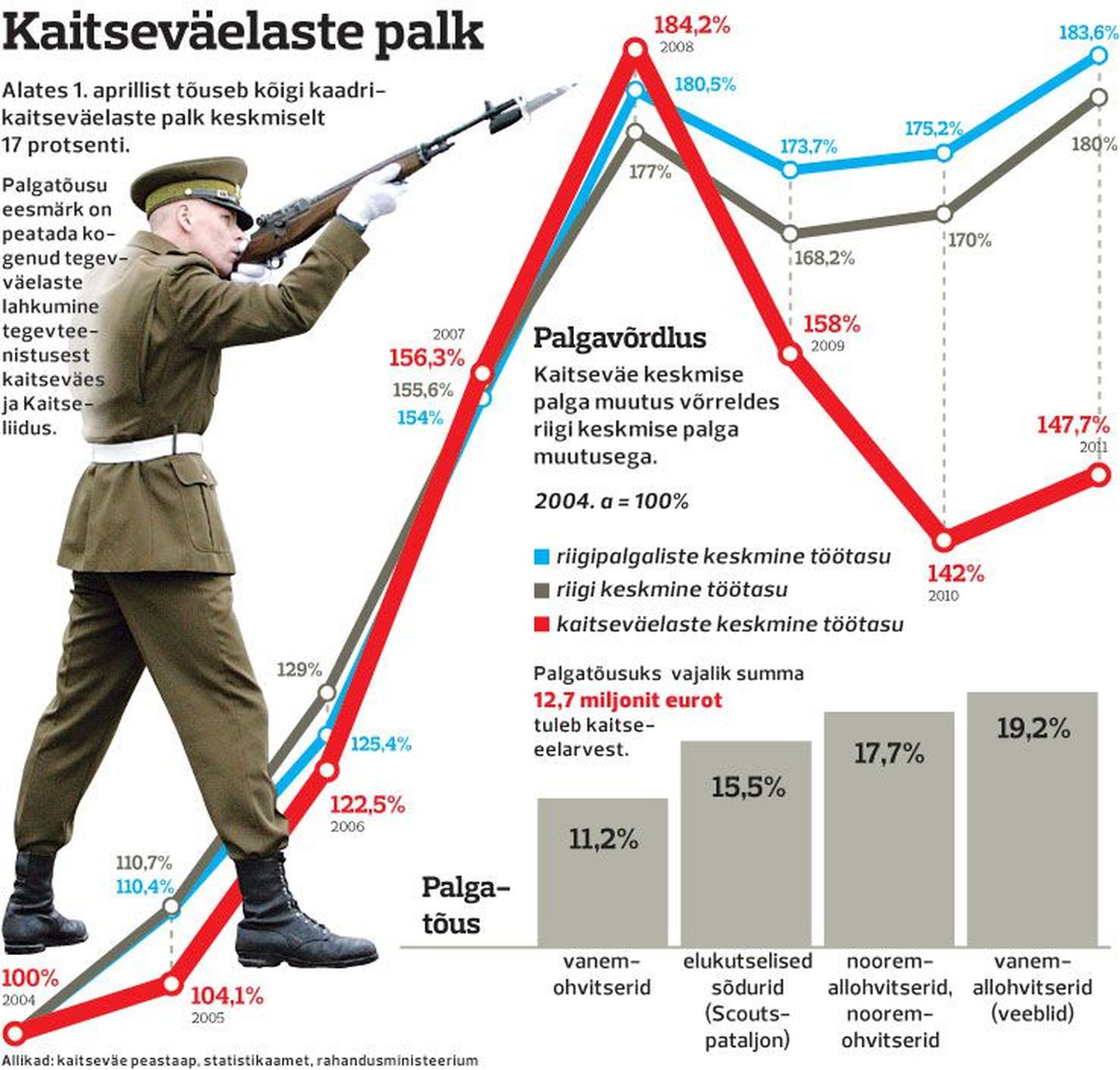
In April, average wages for members of the Defence Forces will rise by 17 per cent, the most generous increase awarded to non-commissioned officers and junior officers.

In April, average wages for members of the Defence Forces will rise by 17 per cent, the most generous increase awarded to non-commissioned officers and junior officers.
The wage scale decree for members of the Defence Forces was signed last Thursday by defence minister Urmas Reinsalu, on the basis of which Commander of the Defence Forces will upscale the pay of his subordinates starting April 1st.
«I’m under orders to avoid any trickery and smart accounting, everybody will be getting more,» explains Lieutenant Colonel Peeter Läns, head of personnel department of Defence Forces’ headquarters. To put it plainly: as members of Defence Forces log on to their bank accounts at the end of April – when the first «new» salary is transferred – the number needs to be bigger than a month ago.
Defence minister Mr Reinsalu confirms having issued the strict guidelines to base the pay rise on total net payment transferred to the subordinates’ bank accounts; there will be no playing around with additional payments or coefficients, no manoeuvres with statistics. It’ll be real money. Pointing to the fact that, in various places, there has been talk of pay rises but linked to lowering of other bonuses etc, the overall payment thereby remaining the same. Right now, both the ministry and headquarters promise the real deal.
On average, salaries of 3,100 defence employees rise 17 per cent. For that, Ministry of defence has found €12.7m for this year. The steepest i.e. 19.2 per cent rise comes to senior non-commissioned officers (warrant officers) and junior non-commissioned officers and junior officers – 17.7 per cent. For example: a platoon commander ranked Second Lieutenant, currently getting €935 a month, will be receiving minimum €1,200 a month. To clarify – we are talking about gross salary, of course.
Even though all receive a rise, the main emphasis is on non-commissioned officers. In defence forces’ language, these are the people working in the «field» i.e. training the conscripts, attending training exercises in the woods, having served in the defence forced about ten years, but still an age-group quite competitive in civilian terms. This is the first risk group that started to leave as recession bit into the salaries. The second risk group is all sorts of specialists, whose loss would be most painful for defence forces. These could be pilots, medical workers, IT-specialists, artillery officers and the like.